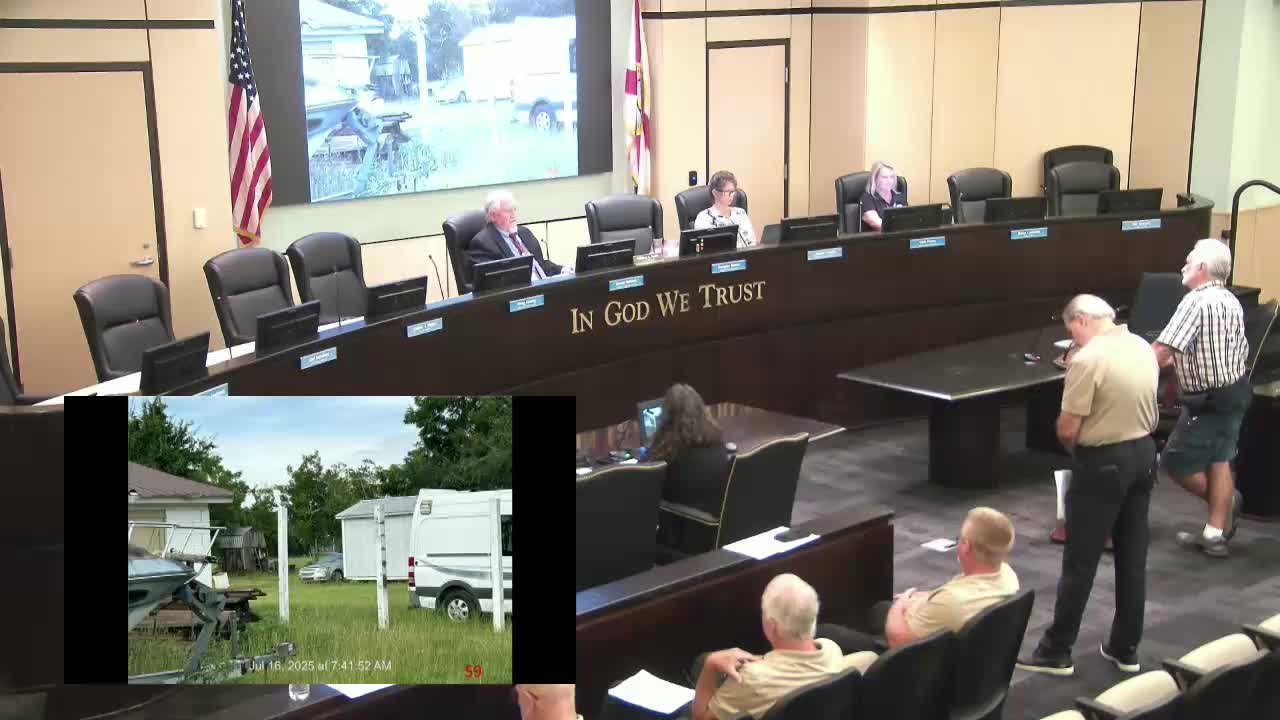Florida Resident Challenges Code Enforcement Over Vehicle Storage Dispute
July 16, 2025 | Bay County, Florida
Thanks to Republi.us and Family Scribe , all articles about Florida are free for you to enjoy throughout 2025!

This article was created by AI using a video recording of the meeting. It summarizes the key points discussed, but for full details and context, please refer to the video of the full meeting. Link to Full Meeting
One of the primary issues discussed involved a property owner, Mr. Atkinson, who expressed frustration over the enforcement of zoning codes that restrict the storage of work vehicles and construction equipment on his property. Atkinson argued that his vehicles, including an ambulance and a cherry picker, are essential for his construction business and should not be classified as derelict. He emphasized the functionality of these vehicles, stating that they are well-maintained and used regularly.
However, code enforcement officials clarified that regardless of the vehicles' condition, zoning laws prohibit the storage of construction equipment on residential properties. They reiterated that only one work vehicle is allowed for personal use, and any additional equipment must be stored elsewhere. This distinction is crucial as it aims to maintain the residential character of neighborhoods and prevent potential nuisances.
The discussion also touched on the complexities of zoning laws, with Atkinson citing examples of other properties in the area that appear to violate similar regulations. He expressed concerns about perceived inconsistencies in enforcement, particularly regarding vehicles across the street that have been left unattended for extended periods. Code enforcement officials responded by stating that they must adhere strictly to the regulations in place, which may differ based on zoning classifications and any grandfathered rights.
As the meeting progressed, Atkinson requested additional time to comply with the code requirements, specifically to complete a fence that would help screen his vehicles from view. He estimated needing about two weeks to finalize these adjustments. The magistrate acknowledged this request but emphasized the importance of adhering to the established codes moving forward.
The hearing underscored the ongoing challenges faced by residents in navigating local zoning laws, particularly as they relate to the use of residential properties for business purposes. As Bay County continues to grow, the balance between residential integrity and the needs of local businesses will remain a critical topic for future discussions. The outcome of this case may set a precedent for how similar disputes are handled in the community, highlighting the need for clear communication and understanding of zoning regulations among residents and officials alike.
Converted from Bay County - Code Magistrate Hearing - Jul 16, 2025 meeting on July 16, 2025
Link to Full Meeting
Comments
View full meeting
This article is based on a recent meeting—watch the full video and explore the complete transcript for deeper insights into the discussion.
View full meeting